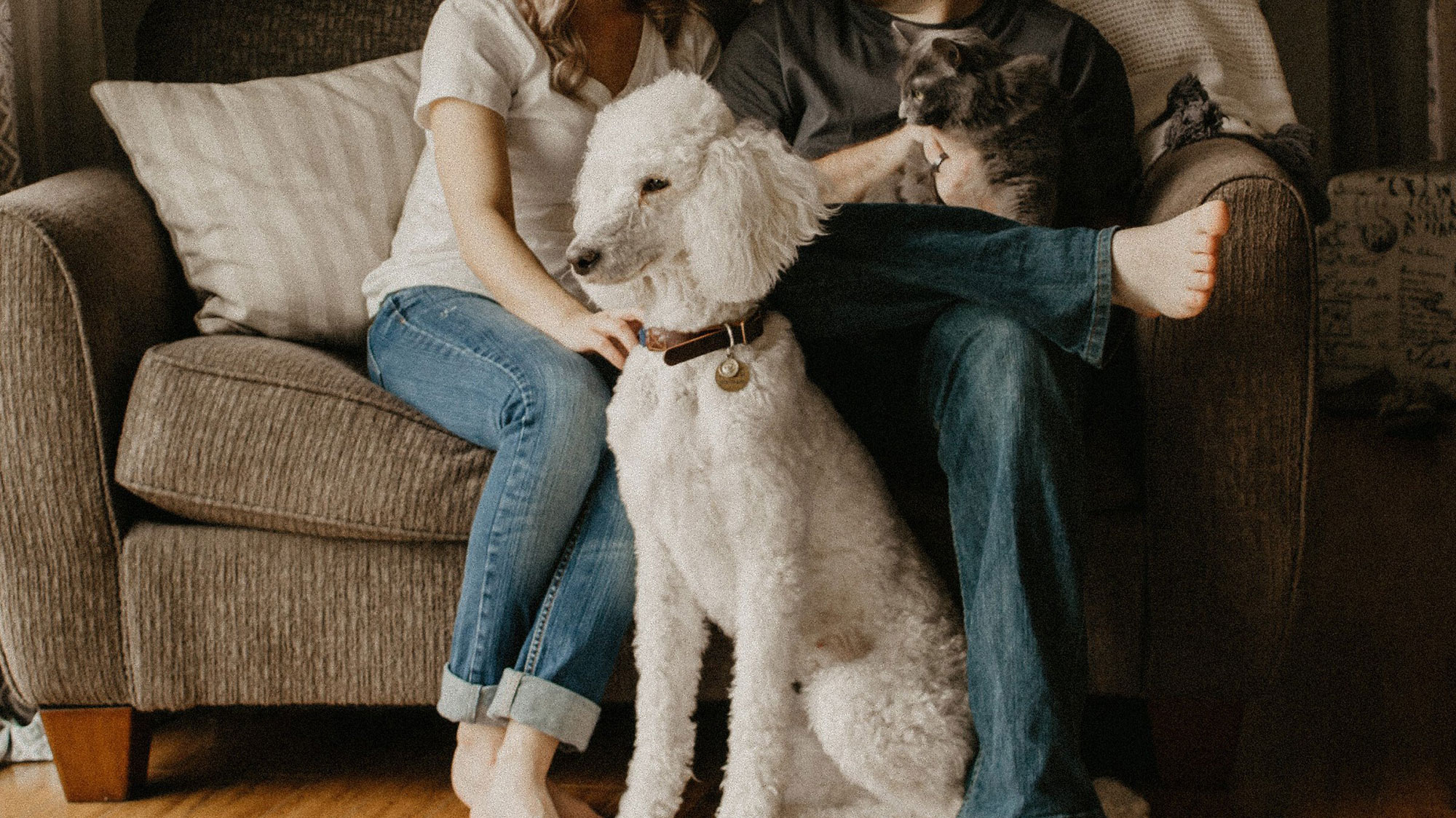Adding any new dog to your family will take work, but there are some additional things to consider when you bring home a rescue dog. Shelters and rescue organisations are full of wonderful pups with endless potential, and adopting is a fantastic thing to do, so we’re here to help things go smoothly!
Before you bring them home
Create a set of boundaries
Dogs thrive on order and clear guidance. They are family animals, so your dog needs to know who is guiding them, and that rules have been established. This gives them a feeling of safety and security that will be critical to their long-term happiness.
Hold a family meeting to create rules about caring for your dog
Will your new pup be allowed on the couch, the bed, and in all rooms of the house? Where will they sleep and eat? Who will walk them and clean up after them? As a family, you must all be consistent with your decisions or you will confuse your dog. This usually results in them making their OWN rules and causing unnecessary tension.
Make sure you have all the items your dog will need, right from the start
This includes ID tags, a collar and a 6’ leash, food and water bowls, quality food, toys, a crate and bedding, and basic grooming tools. When you are prepared, things always go more smoothly.
The first few days
Bring your new dog home when you can be there for a few days
Getting to know each other and establishing trust between you will make it far easier to teach your pup how to become comfortable in their new, unfamiliar home.
Just before you bring your dog into the home, take them for a walk to tire them out a little
Walks are not only good exercise, but they also serve as a training tool and an opportunity to show them positive leadership. Dog walks make for excellent bonding time!
Limit your dog to one room or area for a few days
This gives them time to familiarize themself with the smells and sounds of their new home without becoming overwhelmed.
Delay their introduction to other pets
Your rescue dog should not be left alone in the house with your existing pets until you have carefully monitored and controlled their interactions for a period of time.
Try to avoid having guests right away, to allow your dog to get comfortable with their new family
When you do have guests, ask them not to pay attention to your pup while they first arrive. This removes the pressure on your dog to meet people, and will ensure any over-exuberance goes without reinforcement or encouragement. A sign posted on the front door asking entrants to ‘ignore the dog’ is an easy way to indicate to your guests that you have a new dog in training.
Ensure your dog is examined by a vet within a week after adoption
Most rescue dogs will have been given basic vaccinations and many will have already been spayed/neutered, but a thorough health check is important to ensure their overall wellness.
Natural dog behaviours
Expect housetraining accidents
Patience and understanding are important here. Your dog is in a new territory and is establishing a new routine, so accidents will probably happen. Review any housetraining information available from the shelter, your veterinarian, or your trainer. The key is to be consistent and maintain a routine, which includes setting restrictions on where in the house your dog is permitted to roam while unsupervised.
Dogs instinctively like to den
A crate makes the ideal place for your dog to sleep and get away from household activity. A crate also makes training (and housetraining) easier in general; however, it’s best to limit the amount of time your dog is crated. It should be roomy enough to allow your dog to stand up, turn around, and lie down comfortably. An alternative to a crate is confining them in a dog-proofed part of your home, such as a laundry or mud room. You can use a baby gate to block off the area from the rest of the house.

Tips for continued success
Seek out reliable guidance for training your dog
A well-trained dog is a calmer, happier dog, and a joy to have around. That makes a calmer, happier household! It is amazing how quickly dogs learn what is and isn’t acceptable when the communication between you is clear and efficient. Learning how to communicate your expectations is the only way your dog will be able to meet them.
Be consistent
Practice obedience training, set rules and apply them calmly and consistently, and praise your dog’s good behaviour. They will learn to trust you and bond with you far more quickly. Your praise and affection is your most effective training tool!
Your patience and training will help to create a bond that will reward you both for years to come, and your rescue dog will become a loyal, grateful and loving companion!
Find a Trainer
Want to learn more, or begin training? We can help, let us find the trainer nearest you so that you can reach out to them directly.



